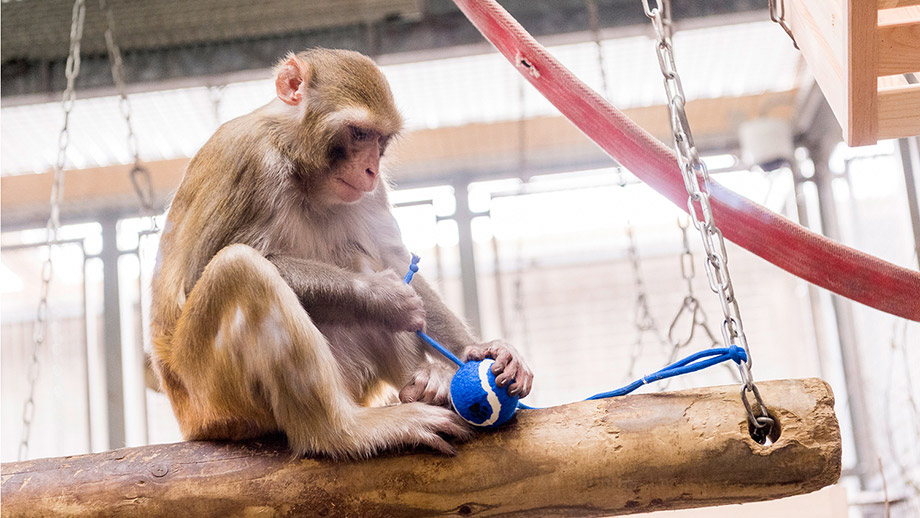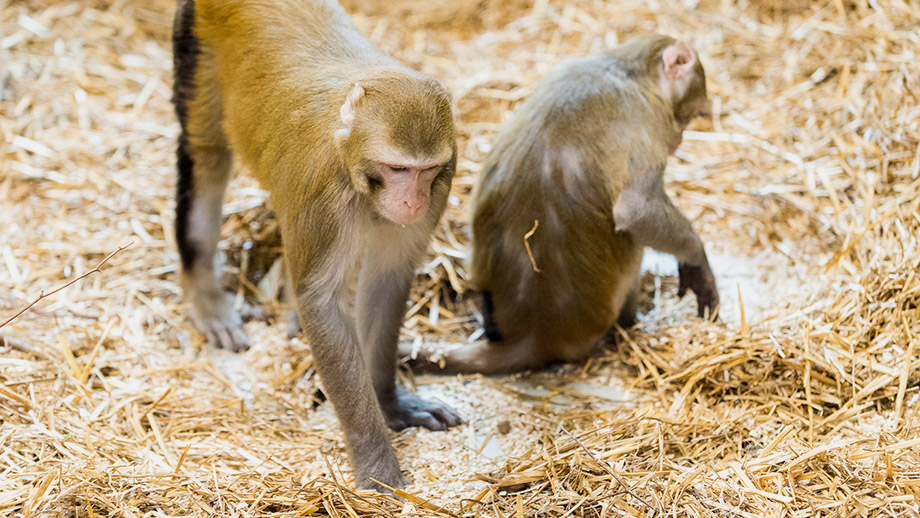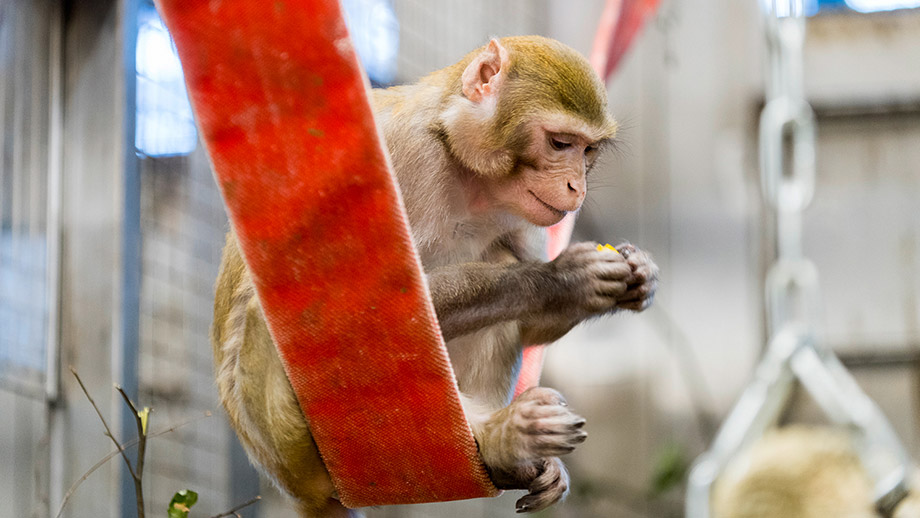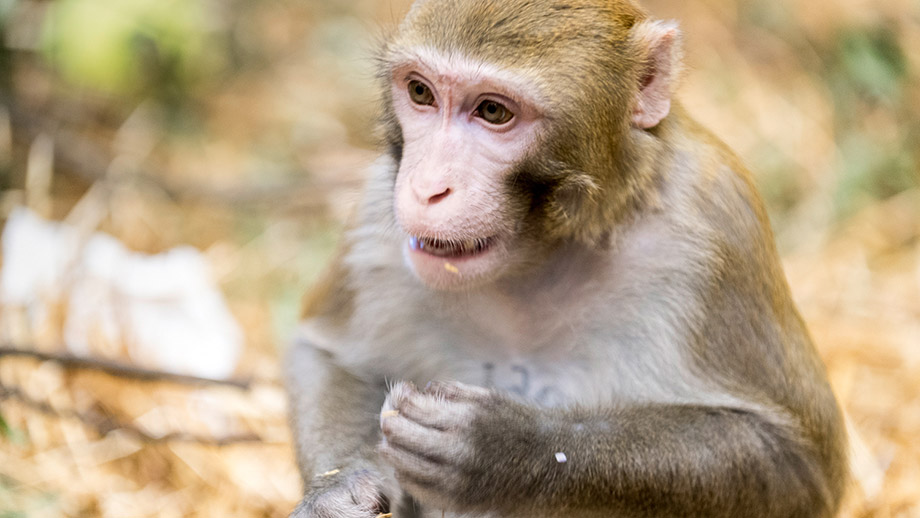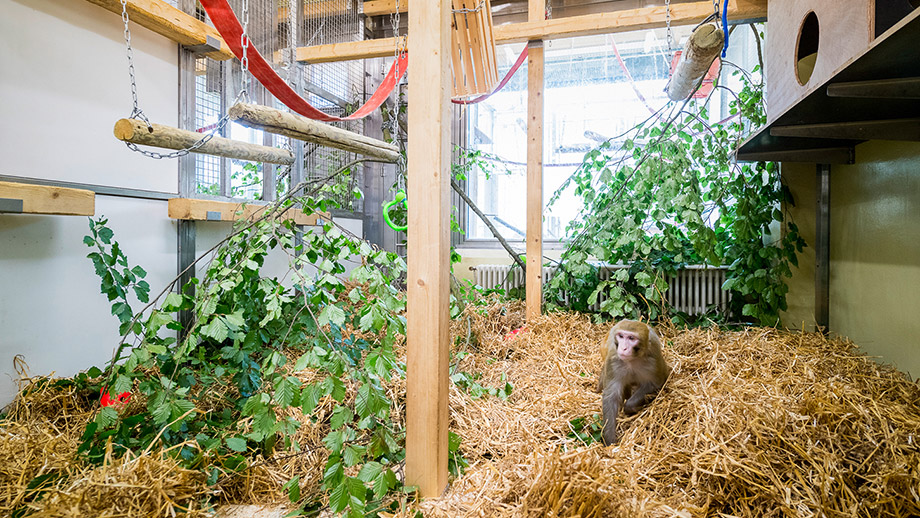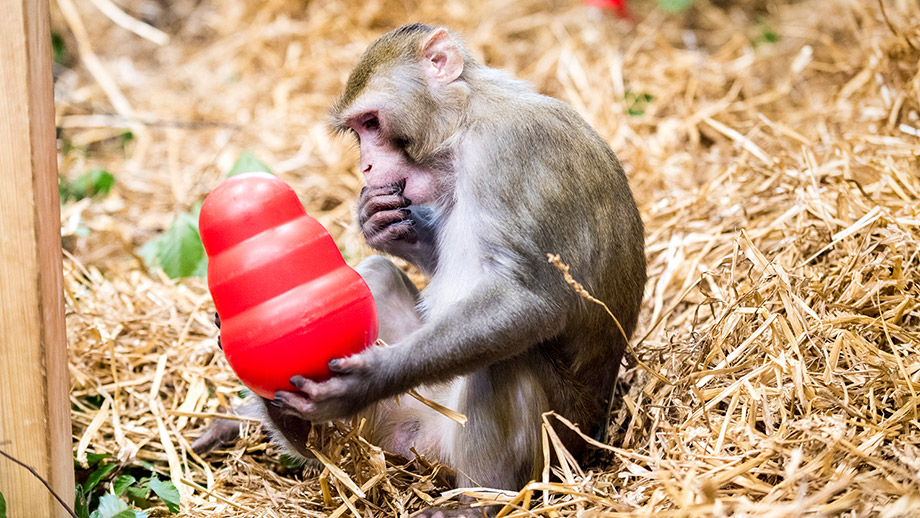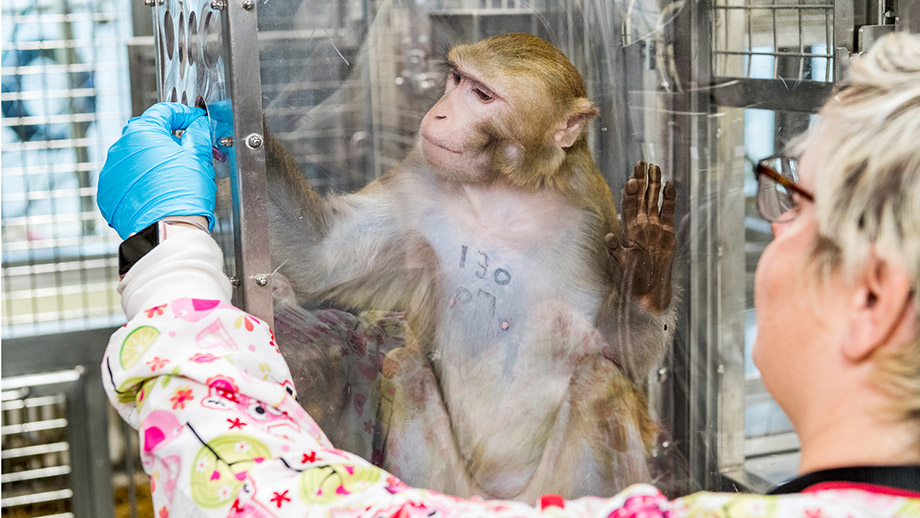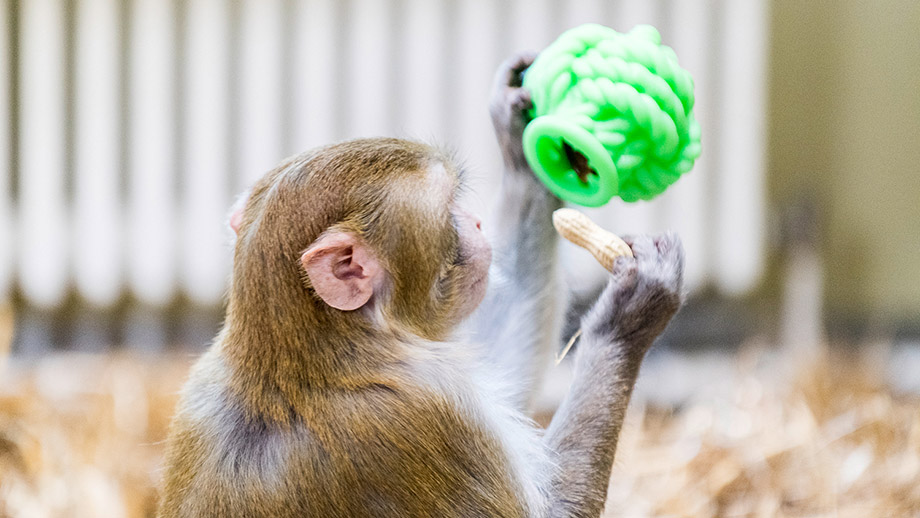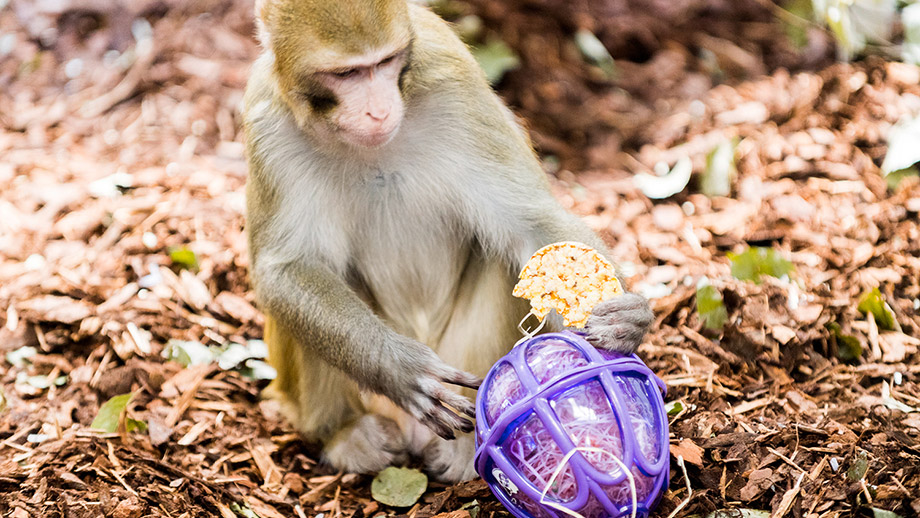Research Involving Primates
In 2020, a total of 190 non-human primates were used in research projects in Switzerland. This comprises 0.03% of all animal testing and represents a decrease of almost 19% compared to the previous year.
Most of these experiments were categorized as low severity, which means they were either non-stressful or only slightly stressful for the animals involved. But experiments with moderate to high severity do take place, for example, when researching and developing therapies for people who have suffered a stroke or spinal cord injury, or who are afflicted by Parkinson's disease. Various Swiss Universities collaborate on these experiments.
Swiss collaboration and standards
Supported by the Swiss University Conference, in 2012 the University of Zurich, the ETH Zurich and the University of Fribourg founded the Swiss Non-Human Primates Competence Center for Research (SPCCR. The center develops the highest standards for keeping and researching on primates, trains all researchers and animal keepers working with primates in Switzerland, and gives all Swiss universities access to the infrastructure and expertise required for research on primates.
Swiss Non-Human Primates Competence Center for Research (SPCCR
Evaluation of interests - case by case
In 2009, the Swiss Federal Supreme Court reached a decision upholding the rejection of two applications for experiments on primates at the University of Zurich and ETH Zurich. This decision, however, has no bearing on the general authorization to conduct primate research in Switzerland. Although the Federal Supreme Court confirmed the rejection of the applications by the lower court, it also clearly stated that the decision was not one of basic policy. It remains the duty of the cantonal commission on animal experimentation to assess each individual application for animal testing via an evaluation of interests procedure.
